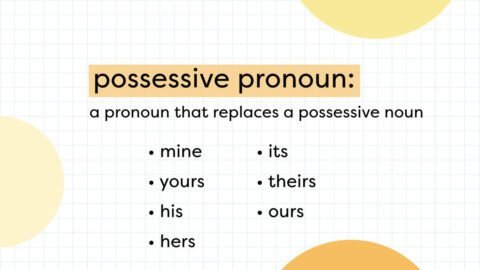Have you ever taken a personality test and been amazed—or even surprised—by the results? In today’s digital age, understanding who we are has become more accessible than ever. From the ubiquitous MBTI test and 16 Personalities test to the ever-intriguing Enneagram test and Big Five Personality Test, millions of people are exploring the nuances of personality every day. But what do these tests really tell us about ourselves? And how do terms like narcissist, sociopath, psychopath, and people pleaser fit into the picture?
In this comprehensive guide, we’ll explore the world of personality tests and assessments. We’ll delve into the popular tools like the Myers Briggs Personality Test, MBTI, and 16 Personalities test, while also examining deeper, sometimes darker, traits—such as narcissism, covert narcissism, and elements of the dark triad. Whether you’re curious about your INFJ, INFP, or INTJ type, or you want to understand the differences between introverts, extroverts, and ambiverts, this guide has something for everyone. We’ll also discuss the practical applications of these tests—from career guidance and personal development to relationship dynamics and self-awareness.
By the end of this post, you’ll have a thorough understanding of various personality assessments, learn actionable tips for using these tools in everyday life, and even explore the more controversial aspects of personality such as narcissistic behavior and antisocial traits. So, let’s embark on this journey to discover who we really are!
1. What Are Personality Tests?
Personality tests are tools designed to assess individual differences in characteristic patterns of thinking, feeling, and behaving. These assessments can be used to foster self-awareness, guide personal development, and even help in making career decisions. Over the years, several models and tests have been developed to quantify and qualify personality, including:
Myers Briggs Personality Test / MBTI:
Perhaps the most well-known personality assessment, the MBTI categorizes people into 16 distinct personality types based on four dichotomies:- Extraversion (E) vs. Introversion (I)
- Sensing (S) vs. Intuition (N)
- Thinking (T) vs. Feeling (F)
- Judging (J) vs. Perceiving (P)
16 Personalities Test:
Based on the MBTI framework, the 16 Personalities test adds a modern twist with detailed descriptions, strengths, weaknesses, and career insights.Enneagram Test:
The Enneagram divides personality into nine interconnected types, each with its core motivations, fears, and behavioral patterns. It’s particularly useful for understanding deeper emotional drivers and personal growth areas.Big Five Personality Test:
Also known as the Five Factor Model, it measures five broad dimensions of personality: Openness, Conscientiousness, Extraversion, Agreeableness, and Neuroticism.DISC Assessment:
This test evaluates personality based on four main traits: Dominance, Influence, Steadiness, and Conscientiousness. It’s widely used in corporate settings for team-building and leadership development.
Each of these tests offers a unique lens through which to view personality, and together they can provide a well-rounded picture of an individual’s character.
2. The Historical Context of Personality Testing
The quest to understand personality is as old as humanity itself. Early philosophers like Aristotle pondered the differences between individuals, while later psychologists such as Carl Jung laid the groundwork for modern personality assessments. Jung’s theories, for instance, directly influenced the development of the Myers Briggs Type Indicator (MBTI).
Key Historical Milestones
Early Theories:
Philosophers and early psychologists speculated on the nature of personality, often relying on observation and introspection.Carl Jung’s Contributions:
In the early 20th century, Carl Jung introduced concepts of psychological types, which later evolved into the MBTI framework.Development of MBTI:
In the 1940s, Isabel Briggs Myers and her mother, Katharine Cook Briggs, built upon Jung’s work to create the MBTI. The test was designed to help individuals understand their psychological preferences, especially in the context of work and personal relationships.Modern Era of Personality Testing:
With the advent of computers and the internet, personality tests have become more accessible and sophisticated. Today, millions take the MBTI test free online, and tools like the 16 Personalities test have turned self-assessment into a global phenomenon.
For more historical insights and further reading, you might explore the American Psychological Association’s resources.
3. Exploring the Myers Briggs Personality Test (MBTI)
3.1. What Is MBTI?
The Myers Briggs Personality Test is a widely recognized tool that categorizes individuals into 16 distinct personality types. It is based on the psychological theories of Carl Jung and was later developed by Isabel Briggs Myers and Katharine Cook Briggs. The test evaluates individuals across four key dimensions:
Extraversion (E) vs. Introversion (I):
This dimension reflects where you gain your energy. Extraverts thrive on interaction, while introverts recharge through solitude.Sensing (S) vs. Intuition (N):
This scale determines how you process information. Sensors focus on concrete facts, whereas intuitives look at patterns and future possibilities.Thinking (T) vs. Feeling (F):
This axis measures decision-making styles. Thinkers prioritize logic and objective criteria, while feelers base decisions on personal values and emotions.Judging (J) vs. Perceiving (P):
This dichotomy describes your approach to the world. Judging types prefer structure and order, while perceiving types are more adaptable and spontaneous.
3.2. Popular MBTI Types: INFJ, INFP, INTJ, and More
Among the 16 personality types, some have gained particular attention:
INFJ:
Often described as the “Advocate,” INFJs are known for their deep empathy, creativity, and desire to help others. They are sensitive to the needs of those around them, making them natural counselors and visionaries.INFP:
Known as the “Mediator,” INFPs are idealistic and loyal to their values. They are driven by a desire to understand and improve the world, and they often have a creative and empathetic outlook.INTJ:
The “Architect” or “Strategist,” INTJs are analytical, logical, and independent. They excel in strategic planning and are often seen as visionaries in their fields.INTP:
Often called the “Thinker” or “Logician,” INTPs are curious and inventive. They thrive on exploring ideas and theories, sometimes at the expense of practical application.
Each type has its own unique strengths and challenges. To explore your own MBTI type, you can take one of the many free MBTI tests online.
3.3. Practical Applications of MBTI
The MBTI is not just a tool for self-discovery; it has practical applications in various areas:
Career Guidance:
Understanding your personality type can help guide career decisions. For example, INTJs might thrive in strategic roles, while ENFPs often excel in creative and interpersonal fields.Team Building:
Many companies use the MBTI to build effective teams by understanding the diverse strengths each personality type brings to the table.Personal Relationships:
Knowing your MBTI type and that of your friends or partner can improve communication and empathy, helping to resolve conflicts more effectively.
For more details on MBTI and its applications, visit the MBTI Official website.
4. The 16 Personalities Test: A Modern Twist on MBTI
4.1. What Is the 16 Personalities Test?
The 16 Personalities Test is an evolution of the MBTI framework, offering a more user-friendly interface and detailed profiles. It incorporates the same four dichotomies but presents the results in a way that is accessible and engaging to a modern audience.
4.2. Features and Benefits
In-Depth Profiles:
The test provides comprehensive descriptions of each personality type, including strengths, weaknesses, career suggestions, and relationship advice.Interactive and Fun:
With visually appealing charts and relatable language, the 16 Personalities Test makes self-assessment enjoyable.Free Access:
Many platforms offer the 16 Personalities test free, making it accessible to a wide audience.
4.3. Real-World Examples
Career Development:
Many professionals use the 16 Personalities Test to gain insights into their work style and improve team dynamics.Personal Growth:
Understanding your personality type can lead to greater self-awareness, helping you identify areas for personal development.
For a detailed exploration of the 16 Personalities, check out 16personalities.com.
5. The Enneagram Test: Discovering Your Core Motivation
5.1. What Is the Enneagram Test?
The Enneagram Test categorizes personality into nine types, each representing a core motivation or fear. Unlike MBTI, which focuses on preferences, the Enneagram delves into emotional drivers and underlying behaviors.
5.2. The Nine Enneagram Types
Each of the nine types has its own distinct set of characteristics:
- Type One – The Reformer:
Perfectionistic, responsible, and self-disciplined. - Type Two – The Helper:
Caring, interpersonal, and eager to please. - Type Three – The Achiever:
Success-oriented, adaptable, and image-conscious. - Type Four – The Individualist:
Sensitive, introspective, and expressive. - Type Five – The Investigator:
Analytical, innovative, and detached. - Type Six – The Loyalist:
Committed, security-oriented, and anxious. - Type Seven – The Enthusiast:
Spontaneous, versatile, and acquisitive. - Type Eight – The Challenger:
Self-confident, decisive, and confrontational. - Type Nine – The Peacemaker:
Receptive, reassuring, and agreeable.
5.3. Applications of the Enneagram
- Personal Growth:
The Enneagram can help you understand your core motivations and work on overcoming personal challenges. - Relationship Dynamics:
Knowing the Enneagram types of those close to you can enhance empathy and communication. - Therapeutic Insights:
Therapists often use the Enneagram to gain deeper insights into a client’s behavior and emotional patterns.
For more on the Enneagram, explore The Enneagram Institute.
6. The Big Five and DISC Assessments
6.1. The Big Five Personality Test
The Big Five Personality Test (also known as the Five-Factor Model) assesses personality across five broad dimensions:
- Openness:
Creativity, curiosity, and willingness to try new experiences. - Conscientiousness:
Organization, dependability, and discipline. - Extraversion:
Sociability, assertiveness, and energetic behavior. - Agreeableness:
Compassion, cooperativeness, and trust. - Neuroticism:
Emotional instability, anxiety, and moodiness.
This model is widely used in psychological research due to its robustness and empirical support.
6.2. DISC Assessment
The DISC Assessment evaluates personality based on four primary traits:
- Dominance (D):
Assertiveness and control. - Influence (I):
Social interaction and persuasion. - Steadiness (S):
Patience and persistence. - Conscientiousness (C):
Accuracy and attention to detail.
DISC is particularly popular in corporate settings for leadership development and team-building exercises.
7. Dark Personality Traits: Narcissism, Sociopathy, and Psychopathy
While personality tests often focus on positive traits and self-improvement, some assessments also explore the darker aspects of human behavior. Terms like narcissist, sociopath, and psychopath are frequently discussed in this context.
7.1. Understanding Narcissism
- Narcissist Meaning:
A narcissist is someone who has an excessive interest in or admiration of themselves. Narcissistic traits include a strong need for admiration, a lack of empathy, and an inflated sense of self-importance. - Covert Narcissism vs. Overt Narcissism:
While overt narcissists are openly self-aggrandizing, covert narcissists might appear shy or reserved but still harbor grandiose internal fantasies. - Vulnerable Narcissist:
This subtype experiences sensitivity to criticism and feelings of insecurity despite their self-absorbed tendencies. - Narcissist Test:
There are various self-assessments available online to help identify narcissistic traits, though professional diagnosis is always recommended for accuracy.
7.2. The Dark Triad: Machiavellianism, Psychopathy, and Narcissism
- Machiavellianism:
Characterized by manipulativeness and a focus on self-interest. - Psychopathy:
Involves a lack of empathy, impulsivity, and antisocial behavior.- Psychopath Meaning:
Often used to describe individuals who exhibit severe emotional and behavioral disturbances.
- Psychopath Meaning:
- Sociopath:
Similar to a psychopath, but the term often implies that the behavior is a result of environmental factors.- Sociopath Meaning:
Refers to someone with a pattern of antisocial behavior and disregard for social norms.
- Sociopath Meaning:
7.3. The Importance of Understanding Dark Traits
- Self-Awareness:
Knowing about these traits can help you recognize unhealthy patterns in yourself or others. - Relationship Dynamics:
Awareness of narcissistic or antisocial behaviors can be crucial in managing personal and professional relationships. - Treatment and Management:
Various therapeutic approaches exist for those struggling with dark personality traits, including narcissism treatments and psychotherapy for psychopathic tendencies.
For further reading on dark personality traits, the Dark Triad Wiki is a reputable source.
8. Integrating Personality Tests for Self-Awareness and Growth
8.1. The Role of Self-Awareness
Self-awareness is the cornerstone of personal development. By understanding your personality type, you can:
- Identify Strengths and Weaknesses:
Whether you’re an INFJ with deep empathy or an INTJ with a strategic mindset, knowing your type helps you capitalize on your strengths. - Enhance Relationships:
Understanding your personality and that of others can lead to improved communication and reduced conflict. - Guide Career Choices:
Personality assessments like the Myers Briggs Personality Test and Big Five test can provide valuable insights into which careers might suit you best.
8.2. Best Practices for Using Personality Tests
- Take Multiple Tests:
Consider exploring different assessments such as MBTI, Enneagram, and Big Five to gain a multifaceted view of your personality. - Reflect on the Results:
Don’t just take the tests—analyze your results and consider how they align with your experiences. - Seek Professional Guidance:
For a deeper understanding, consider consulting a psychologist or career counselor. - Keep an Open Mind:
Remember that no test can capture the entirety of who you are. Use these tools as guides, not definitive answers.
8.3. Practical Tips for Personal Growth
- Set Goals Based on Your Personality:
If you’re an ISFP known for your creativity, set goals that allow you to express your artistic side. - Work on Weaknesses:
Use the feedback from personality tests to identify areas for improvement—perhaps becoming more assertive if you’re a chronic people pleaser. - Celebrate Your Uniqueness:
Every personality type has its own set of strengths. Embrace what makes you unique, whether you’re an ambivert, sigma male, or a highly sensitive person.
9. Practical Applications: Personality in the Real World
9.1. Career and Professional Development
Personality tests have become indispensable tools in the workplace:
- Career Personality Test:
Understanding your personality can help you find a career path that aligns with your natural inclinations. - Team Dynamics:
Employers often use tools like the DISC assessment or Big Five test to build effective teams. - Leadership Development:
Knowing whether you lean towards Type A or Type B behavior can guide your leadership style and help you manage stress.
9.2. Relationships and Social Dynamics
- Improving Communication:
Whether you identify as an ENFJ or INTP, knowing your personality type can improve how you communicate with friends and family. - Understanding Toxic Traits:
Awareness of traits like narcissism, psychopathy, or sociopathy can help you navigate challenging relationships and avoid codependent dynamics. - Enhancing Empathy:
Tools like the empath test or self-assessments focused on emotional intelligence can improve your ability to understand and support others.
9.3. Personal Well-Being and Self-Improvement
- Self-Compassion:
Recognizing your personality type is a first step towards greater self-compassion and self-care. - Goal Setting:
Use your personality insights to set realistic, meaningful goals that play to your strengths. - Mindfulness and Self-Awareness:
Incorporate practices that foster self-awareness, such as journaling or meditation, to better understand your internal landscape.
For more practical tips on using personality tests for self-improvement, check out resources from Psychology Today.
10. Frequently Asked Questions (FAQ)
Q1: What is the MBTI test, and how does it differ from the 16 Personalities test?
A: The MBTI (Myers Briggs Type Indicator) is a personality assessment based on four dichotomies that categorize individuals into 16 types. The 16 Personalities test is a modern adaptation of the MBTI framework, offering detailed profiles and user-friendly interfaces. Both are valuable tools for self-discovery, but the 16 Personalities test often provides more nuanced insights into behavior and compatibility.
Q2: What does it mean to be an INFJ or INFP?
A:
- INFJ: Often called the “Advocate” or “Counselor,” INFJs are empathetic, insightful, and driven by a desire to help others.
- INFP: Known as the “Mediator” or “Idealist,” INFPs are introspective, creative, and guided by strong personal values. Both types are highly sensitive and often prioritize authenticity and personal growth.
Q3: Are personality tests accurate?
A:
Personality tests can provide valuable insights, but they are not definitive. Factors such as mood, context, and self-perception can influence results. It’s best to use these tests as tools for self-reflection rather than absolute judgments.
Q4: What is narcissism, and how can I tell if someone might be a narcissist?
A:
Narcissism involves an excessive preoccupation with oneself, a strong need for admiration, and a lack of empathy. There are various self-assessments (narcissist tests) available, but a professional evaluation is recommended for accuracy. Key signs include arrogance, a tendency to exploit others, and sensitivity to criticism.
Q5: What are the differences between a sociopath, psychopath, and narcissist?
A:
- Sociopath: Typically exhibits antisocial behavior and a disregard for social norms, often attributed to environmental factors.
- Psychopath: Characterized by a lack of empathy, impulsivity, and manipulative behavior, with more genetic underpinnings.
- Narcissist: Focuses on self-admiration and may display either overt or covert narcissistic traits. Understanding these differences can help in identifying toxic behaviors and protecting your well-being.
Q6: What is the Big Five Personality Test?
A:
The Big Five Personality Test measures five key dimensions of personality: Openness, Conscientiousness, Extraversion, Agreeableness, and Neuroticism. It is widely respected for its scientific rigor and is used extensively in psychological research.
Q7: How can personality tests help in personal development?
A:
By providing insights into your strengths, weaknesses, and behavioral patterns, personality tests foster self-awareness. This self-knowledge can guide your personal growth, help in setting meaningful goals, and improve your relationships both personally and professionally.
Q8: Where can I take free personality tests?
A:
Many reputable websites offer free tests, including MBTI tests, 16 Personalities tests, Enneagram tests, and Big Five assessments. Some popular options include 16Personalities and Truity.





